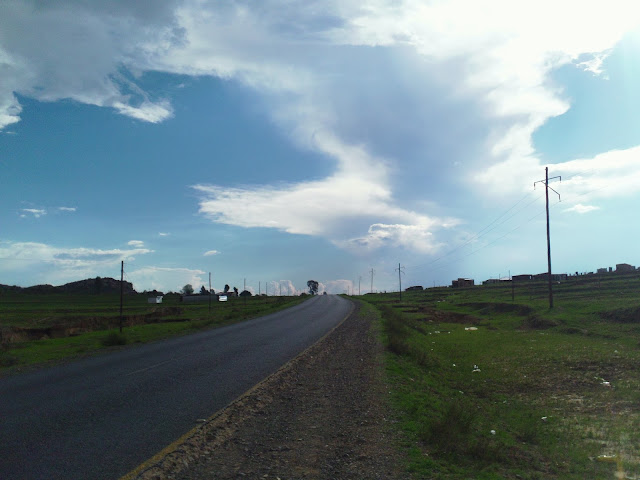But sometimes I'll have an experience
like I did at the BRO camp that I co-organized last weekend, where
suddenly I know exactly what I'm supposed to be doing, and I'm in the
right place at the right time.
A little background:
Boys are great, and I think it's a damn
shame how often they're left out of the gender equality equation,
everywhere in the world. Nowadays there are a ton of programs to
support and empower girls across Africa, but these things rarely have
an equivalent for boys. How are they supposed to learn positive
self-esteem, how to clearly communicate and have healthy
relationships, to stay physically healthy, to protect themselves and their partners
from HIV and to support and empower the women in their lives if no one
teaches them how?
In Lesotho, boys in general are not
trusted and largely blamed for problems like theft, regardless of
evidence.
There is a huge drinking problem here,
evidenced by the fact that there is a bar or homemade joala (alcohol)
in EVERY village (but in some areas only one clinic for like five
villages), around which drunk bo-ntate (men) gather.
From around the time that they start
puberty, there is a very clear, invisible divide between girls and
boys. This means they live together and go to school together, but in
terms of their roles and social circles, they are almost entirely
seperate.
Culturally, most adults will not talk
about sex (the physical part of it, the emotional part, nothin). This
is regardless of the fact that Lesotho, a country around the size of Maryland, is number 1 or 2 in the WORLD for HIV transmission.
So it's really no surprise that come
adolescence:
most boys are aware of HIV as a thing
and as problem, but not the ins and outs of how it works and what
they can do to keep themselves and their partners safe.
They are very aware of alcohol but not
the full ramifications of it.
They have never thought about their
roles in society and in relationships as boys/soon-to-be-men (e.g.
THE PATRIARCHY)
They generally think that they have the
right to have sex with whoever they want, whenever they want.
...which is all really problematic.
So that's why Mackenzie, Ototo and I (DREAM TEAM SUPREME) had this camp, and it
was incredible to see the boys create the safe space that they agreed
on in the contract
, to see the counterparts facilitating and
supporting them and to see what they all took away from the
experience. It was without a doubt one of the peaks of my time here.
 |
| Morning stretch=morning fresh |
 |
| Mack is a superior poster maker |
 |
| Gotta dance |
 |
| snaps for condoms! |
 |
| don't forget the ladiez |
 |
| "So this is my bazooka..." |
 |
| nothin' like a condom demo to engage the youth |
 |
| Our amazing guest speakers from Jhpaigo, who came to talk about Voluntary Medical Male Circumcision. It cuts down on the rate of HIV transmission by 60%! |
 |
| pretty gross |
 |
| you're damn right I hugged every single boy at that graduation |
 |
| The dream team! Hats off! Khotso ya'll, and happy spring philly. The autumn equinox just happened here, and the breeze is becoming colder. |




















